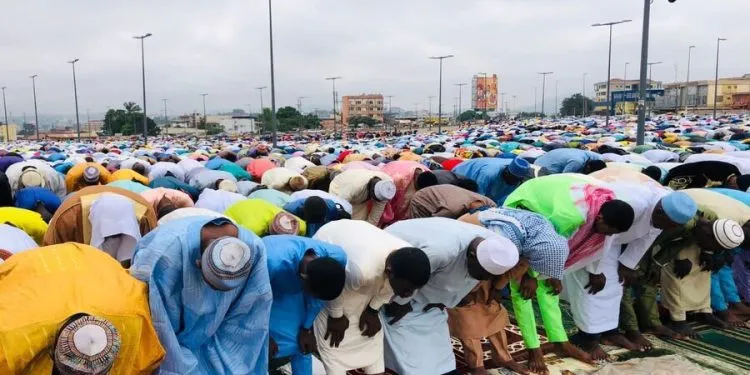By Kate Bih
Muslims in Cameroon are gearing up for the start of Ramadan on Tuesday, March 12, amidst ongoing armed conflict and rising prices of basic commodities.
The National Moon Crescent Commission (NMCC), in a release on March 10, said that the lunar crescent, which signals the start of Ramadan 2024, has not been sighted anywhere in the national territory.
“The month of Shaaban will be completed to 30 days and the fast will begin, in sha Allah, on Tuesday March 12, 2024,” the release stated.
Moon sighting, a traditional practice, is usually carried out with a telescope or by gazing at the skies with the naked eye before the official announcement.
Fasting during Ramadan is one of the five pillars of Islam, alongside the Muslim declaration of faith, five daily prayers, giving Zakah (charity), and performing the Hajj pilgrimage to Mecca, Saudi Arabia.
In the city of Bamenda, headquarters of the North West Region, Muslims are facing the challenge of observing the fast amidst the devastating armed conflict and the increasing costs of essential goods.
However, this difficult period has become a focal point for their prayers.
“The armed conflict has devastated us, and during this holy month, we will be praying for Allah to help us achieve peace,” said Aladhji Adamu, a Muslim faithful.
Mariama Sule, another faithful, acknowledged the challenges ahead but remained hopeful.
“It will be a very challenging period observing the fast but Allah will show us the way, we are hopeful.”
The month of Ramadan is a time when Muslims worldwide focus on prayer, fasting, giving charity, and religious devotion.
“In our context in Bamenda, we know there are many Muslims who will not have the basics to maintain the fasting. Since Allah has blessed my family, we will be doing a lot of Zakat (charity),” shared Ali Danpullo, a businessman.
To prepare for the holy month of Ramadan, mosques across the city carried out special sessions and classes (Darsa) to usher in the fasting period.
During Ramadan, Muslims abstain from all forms of food and drinks during daylight hours, breaking their fast at sunset. Fasting is compulsory for every Muslim male or female, with exemptions including children under the age of puberty, those who are mentally unfit, the elderly, sick individuals whose health would be severely affected, pregnant women, breastfeeding mothers, and women menstruating.
The fasting will conclude with the Eid al-Fitr celebrations.
This year, as Muslims in Cameroon observe Ramadan, their prayers and fasting hold an even deeper significance amidst the backdrop of ongoing conflict and hardships.



